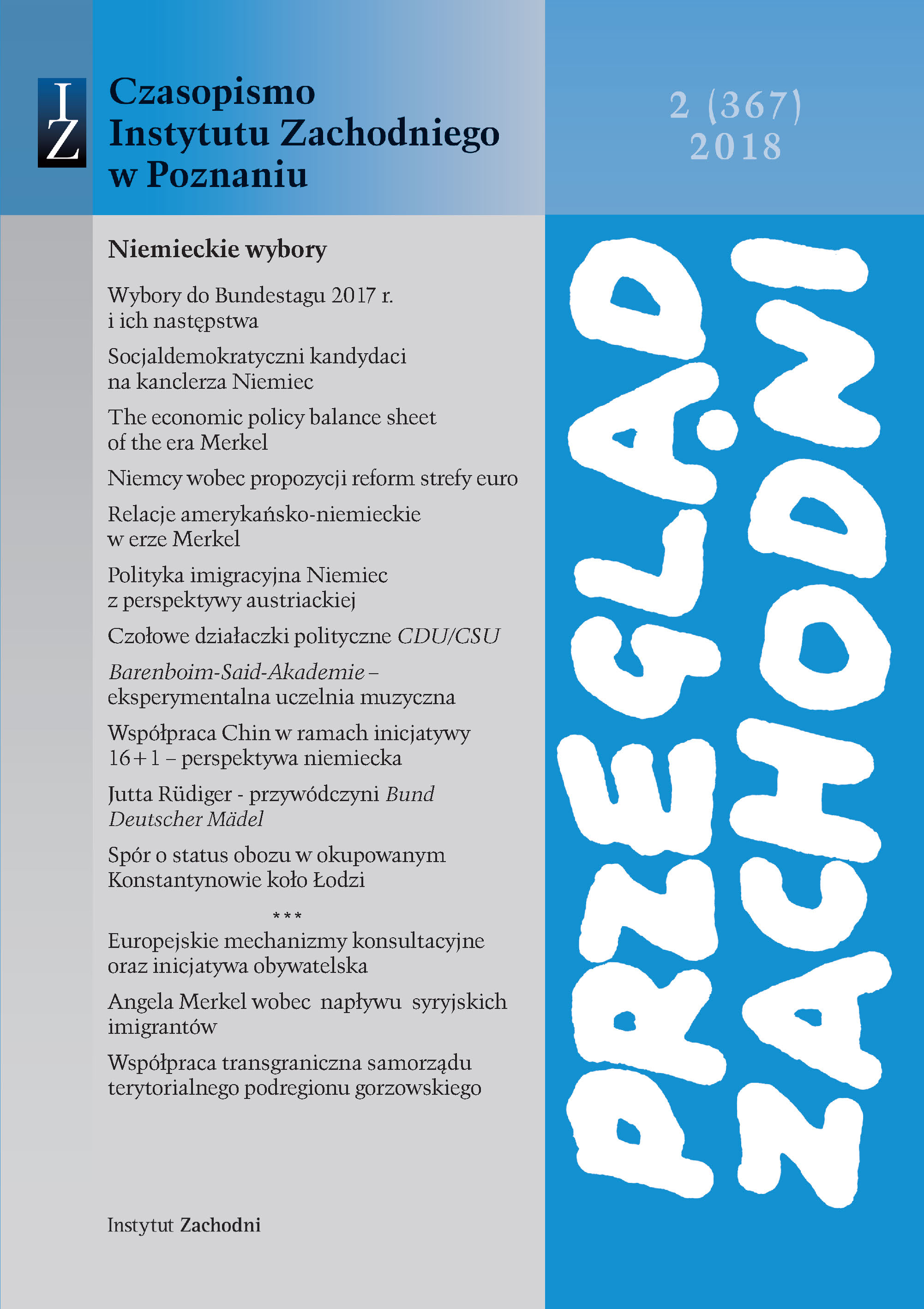Barenboim-Said-Akademie – eksperymentalna uczelnia muzyczna w Berlinie
Barenboim-Said-Akademie – experimental music school in Berlin
Author(s): Maria Wagińska-MarzecSubject(s): Education, Sociology of Culture, Sociology of the arts, business, education
Published by: Instytut Zachodni im. Zygmunta Wojciechowskiego
Keywords: Barenboim-Said-Akademie in Berlin; Pierre-Boulez-Saal; musical education; integration; understanding among nations
Summary/Abstract: The aim of the article is to present an original initiative (whose originator and animator is the Argentine-Israeli pianist and conductor Daniel Barenboim) to create in Berlin a college with a musical humanistic profile as an institutional platform for dialog and understanding among young people coming from war ridden countries of the Middle East (Syria, Israel, Palestinian Authority, Iraq, Iran, Turkey, Egypt, Lebanon). The academy is expected to educate around 90-100 young musicians from Middle Eastcountries. The establishment of an experimental cultural-educational institution, the Barenboim-Said-Akademie (8 December 2016) deserves attention for a variety of reasons: political, cultural, educational,social. It is an interesting phenomenon because of the many functions to be performed by the Academy itself (its fundamental task being education and learning: tutoring in music and humanistic subjects),its students (perfecting their professional skills and learning the history and culture of another nation through music), and last but least the institution as a music center (offering Berlin and its citizens an original concert hall). The study attempts to communicate the message and main assumptions of the initiative with an emphasis on the support it has received in Germany from different institutions ranging from the Bundestag, through the federal government (especially the Ministry of Foreign Affairs and the Office o fthe government of the FRG for culture and the media) to other bodies cooperating in the creation of the Academy. Thanks to the determination and unfailing endeavors of one individual it was possible to create a music college dedicated to performing, on a neutral ground, educational, integrative and political functions for people from other cultural environments. Germany is a country with an openness to other cultures and a favorable socio-political climate for the development of artistic personalities and initiatives towards integration and peace. The indirect observation method was used in the study; it was based on information and materials collected by the analyzed institution as well as on interviews and utterances of competent politicians.
Journal: Przegląd Zachodni
- Issue Year: 367/2018
- Issue No: 02
- Page Range: 157-174
- Page Count: 18
- Language: English, Polish

